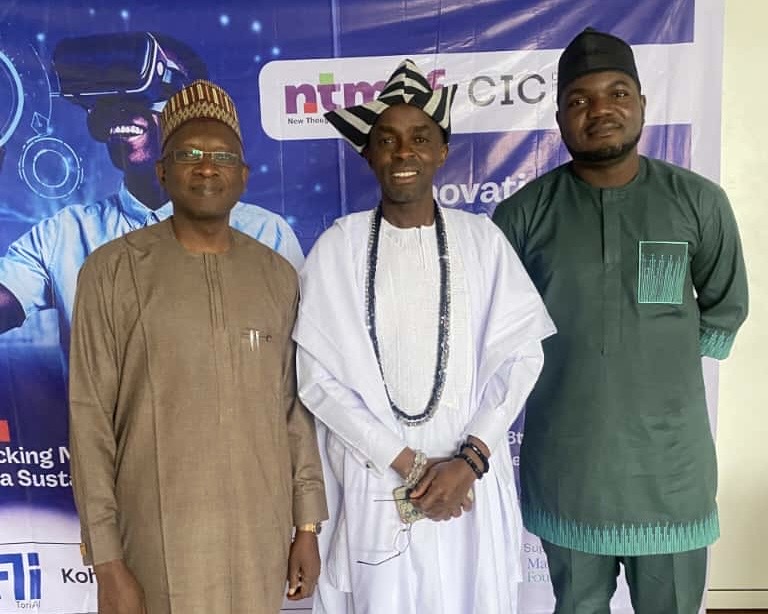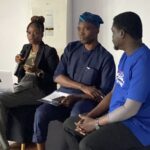Technology and education experts have stressed the urgent need for Nigeria to bridge its artificial intelligence (AI) knowledge gap, strengthen collaboration across key sectors, and develop culturally relevant technologies to secure the country’s place in the global AI landscape.
The call was made during a high-level panel discussion on “AI Ecosystem in Nigeria: The Knowledge Gap and Raising the Next Generation of Experts”, convened by the New Thoughts Media Support Foundation (NTMSF).
Dr. Olusola Ayoola, founder of RAIN Robotics and a leading figure in Nigeria’s AI sector, reflected on his decision to return to the country six years ago to help bridge the gap between academic training and industry needs.
“I came back to Nigeria for a particular reason — to bridge the knowledge gap between what universities produce and what the industry requires,” Ayoola said. “If we are not careful, we will end up training more people who can only use imported AI tools, without developing the capacity to compete globally.”
He explained that his organization developed a curriculum that included hands-on training in machine learning, deep learning, and project-based learning. Early trainees began experimenting with generative adversarial networks before global tools like ChatGPT gained traction.
“I realized that we got into the party very late,” he added. “A lot of research had already been done globally. But Nigeria still has an advantage — our unique datasets. These can be leveraged to train AI systems that reflect our realities, if we invest in skills and infrastructure.”
Four-Way Collaboration Needed
Professor Suleiman Yar’adua, a communication scholar and university administrator, emphasized that Nigeria’s AI ecosystem can only thrive through structured collaboration between four key stakeholders: academia, industry, government, and the community.
“The ecosystem requires a quadruple helix — academia, industry, government, and society — working together,” he said. “If any part of this structure is weak, the entire system suffers.”
He criticized the current disconnect between universities and industry, noting that companies rarely return to their alma maters to support curriculum development, research, or staff immersion.
“You expect universities to produce plug-and-play graduates, but you’ve left us behind,” he said to industry players. “When was the last time you came to campus to share new tools or provide internship opportunities for both students and lecturers?”
Professor Suleiman also called for a policy shift in education, moving from a system where “the worst teach the rest” to one that prioritizes excellence in teacher training.
“Until we change our educational policies to let the best teach the rest, we will keep producing graduates who lack the skills needed to drive innovation,” he said.
Culturally Rooted AI as Nigeria’s Advantage
Professor Musa Aibinu, a development communication expert, highlighted the importance of embedding cultural values into AI systems to make them relevant and sustainable within Nigeria.
“For AI to work for us, it must be designed within our political structures, cultural values, and societal norms,” he said. “Unless technology reflects who we are, it cannot truly serve us.”
He noted that Nigerian scientists and innovators are increasingly developing AI tools that reflect local contexts, languages, and cultural nuances.
“Gradually, we are creating our own universe within the AI ecosystem,” he said. “Our data reflects who we are, and soon, these locally developed systems will be valuable to the rest of the world.”
Looking Ahead
Panelists agreed that Nigeria has significant potential to become a leading AI destination in Africa, but only if the country closes its skills gap, reforms education, fosters cross-sector collaboration, and builds technologies that reflect its unique cultural identity.
They warned that failing to act decisively could leave the nation dependent on foreign technologies, with little control over the data and systems shaping its future.





